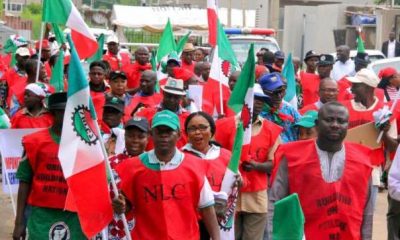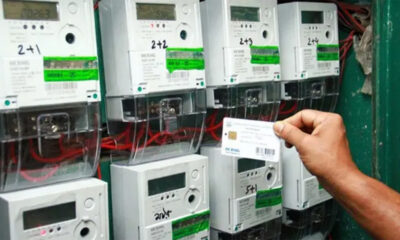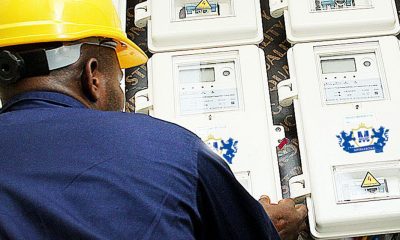Business
FG suspends electricity tariff hike as power subsidy hits N1.6tn
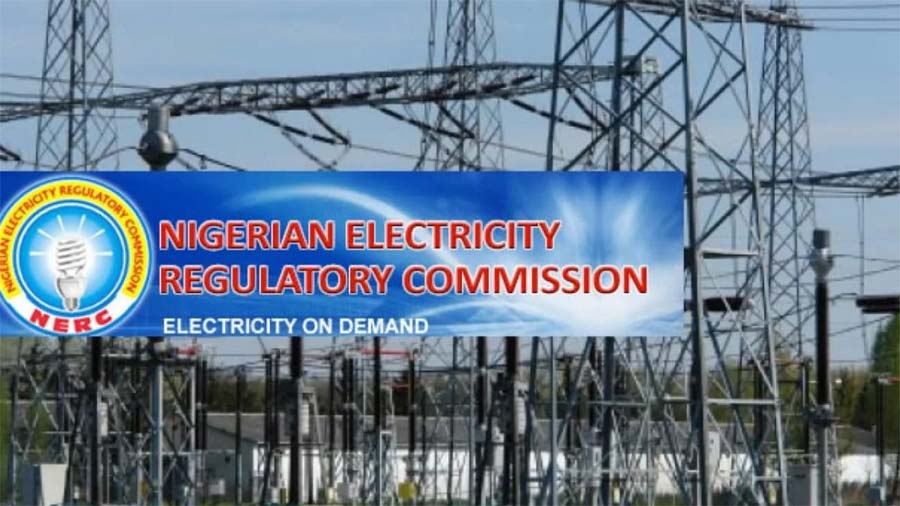
FG suspends electricity tariff hike as power subsidy hits N1.6tn
The Nigerian Electricity Regulatory Commission, on Wednesday, released the 2024 electricity tariffs which showed that the Federal Government is to shoulder about N1.6tn subsidy this year to avert electricity tariff hike.
In the tariff review applications of the 11 power distribution companies in Nigeria, the NERC revealed what it approved as their different cost-reflective tariffs and what was allowed as tariffs by the commission following the Federal Government’s subsidy.
The NERC disclosed this in the regulatory instruments on the Multi Year Tariff Order 2024 for the different power distribution companies.
It said the order shall take effect from January 1, 2024, and shall cease to be effective on the issuance of a new tariff review order by NERC for each particular Disco.
The reports indicated that the tariffs should naturally rise considering various economic fundamentals and industry parameters such as the rise in foreign exchange, cost of gas, inflation, among others.
But an analysis of the MYTO 2024 documents for various Discos indicated that the NERC retained the electricity tariffs for 2023, based on the subsidy being paid by the government this year.
Taking Ikeja, Benin and Abuja Discos for instance, while the cost-reflective tariffs approved by NERC for the Discos for 2024 were N112.10/Kilowatt-hour, N126/kWh and N120.88/kWh respectively, what the regulator approved for the power firms were N56.6/kWh, N60.1/kWh and N63.24/kWh respectively.
It was observed that the NERC retained the tariffs charged by the Discos in 2023, as the Federal Government would pay their respective outstanding balance through subsidy this year.
Further analysis of the reports showed that the subsidy for only the month of January 2024 which the government would incur for consumers under Ikeja Disco was N19.85bn; for Benin Disco, N11.74bn; and for Abuja Disco, N19.44bn.
READ ALSO:
- Dangote refinery: Eterna becomes official domestic sales distributor
- Parents groan as institutions hike fees by over 100 per cent
- Soyinka alleges Obi, Datti’s involvement in 2023 election annulment script
The cumulative subsidy for the entire year is what the power sector regulator puts at N1.6tn.
It must, however, be stated that what the Discos submitted to the NERC as their own calculated cost-reflective tariffs were far higher than the cost-reflective tariffs approved for them by the regulator.
However, despite approving lower cost-reflective tariffs for the power firms, the allowed tariffs were further reduced, as the balance would be sorted by the N1.6tn subsidy to be paid by the Federal Government.
The Federal Government has been paying subsidies on electricity before now, but it has not been this much.
For instance, on December 18, 2023, The PUNCH exclusively reported that the Federal Government spent N375.8bn on electricity subsidy between January and September 2023, as power consumers paid a total of N782.6bn for the commodity during the same period.
The report stated that in the first quarter of 2023, the Federal Government subsidised power by N36bn, this increased to N135.2bn in the second quarter, and jumped to N204.6bn in the third quarter. Figures for the fourth quarter are not released yet.
The NERC, however, stated on Wednesday that the N1.6tn subsidy for 2024 was too high and stressed that it was not sustainable.
It also revealed that four states had developed their electricity law, while four others were in the process of completing theirs.
Providing explanation on the new tariff order released by the commission, the Chairman, NERC, Sanusi Garba, said, “On the MYTO, I want to correct the wrong impression that for one year we haven’t had any reviews.
“The reality is that the reviews are being done, but what has happened is that what you pay as a customer is a blend of regulation and policy. So if we determine that you should be paying N150 and the Federal Government says ‘no you should pay N60, I will pay the difference,’ then that’s what it is. The government will now provide the money.
READ ALSO:
- Breach of contract: Court dismisses Davido’s preliminary objection
- Our soldier didn’t commit suicide, he accidentally shot himself dead – NA
- NIN: Phone users complain over barred lines after linkage
“So that is why in the current tariff order, you will see that this is what you should pay, while this is what the government says you should pay, because the government will provide the difference, until there is a change of policy.”
Also commenting on the development, the Vice Chairman, NERC, Musiliu Oseni, declared that the N1.6tn electricity subsidy was unsustainable, stressing that subsidy was more beneficial to the rich.
He said, “In this order, we provided what the tariffs are supposed to be, and what is being charged based on the subsidy policy of the government. And in each order, you will see the amount of subsidy per Disco.
“And in total, this year we are heading to about N1.6tn subsidy, which most likely everybody here will feel is not sustainable. If nothing is done to electricity tariffs, that is what the subsidy will likely be. Now, how much is the total budget of this country?
“You can do the maths and find out the percentage that that will represent, and whether we should continue to do that. Meanwhile, evidence has shown that it is the rich that benefit more from the so-called subsidy.”
Reacting to what his vice said, Garba stated that “hopefully, going forward, we will focus more on the vulnerable customers in terms of the benefit of subsidy. Then those who can truly afford the true cost of electricity will pay for it.”
On states that have enacted their own electricity laws, the Commissioner, Legal, Licencing and Compliance, NERC, Dafe Akpeneye, said four states now have their own electricity laws, while four others were making finishing touches on theirs.
Outlining states that have developed their power laws, he said, “Basically it is Ondo, Ekiti, Enugu and Anambra. Lagos, Osun, Edo and Kano are work in progress.”
In June 2023, President Bola Tinubu assented to the electricity bill, which empowers states, companies and individuals to generate, transmit, and distribute electricity.
The new electricity law repeals the Electricity and Power Sector Reform Act of 2005 and consolidates the laws relating to the Nigerian Electricity Supply Industry.
Recall that the senate had passed the electricity bill in July 2022 to solve the sector’s challenges.
FG suspends electricity tariff hike as power subsidy hits N1.6tn
Auto
NADDC DG hails Kojo Motors for establishing CNG conversion centre in Owerri
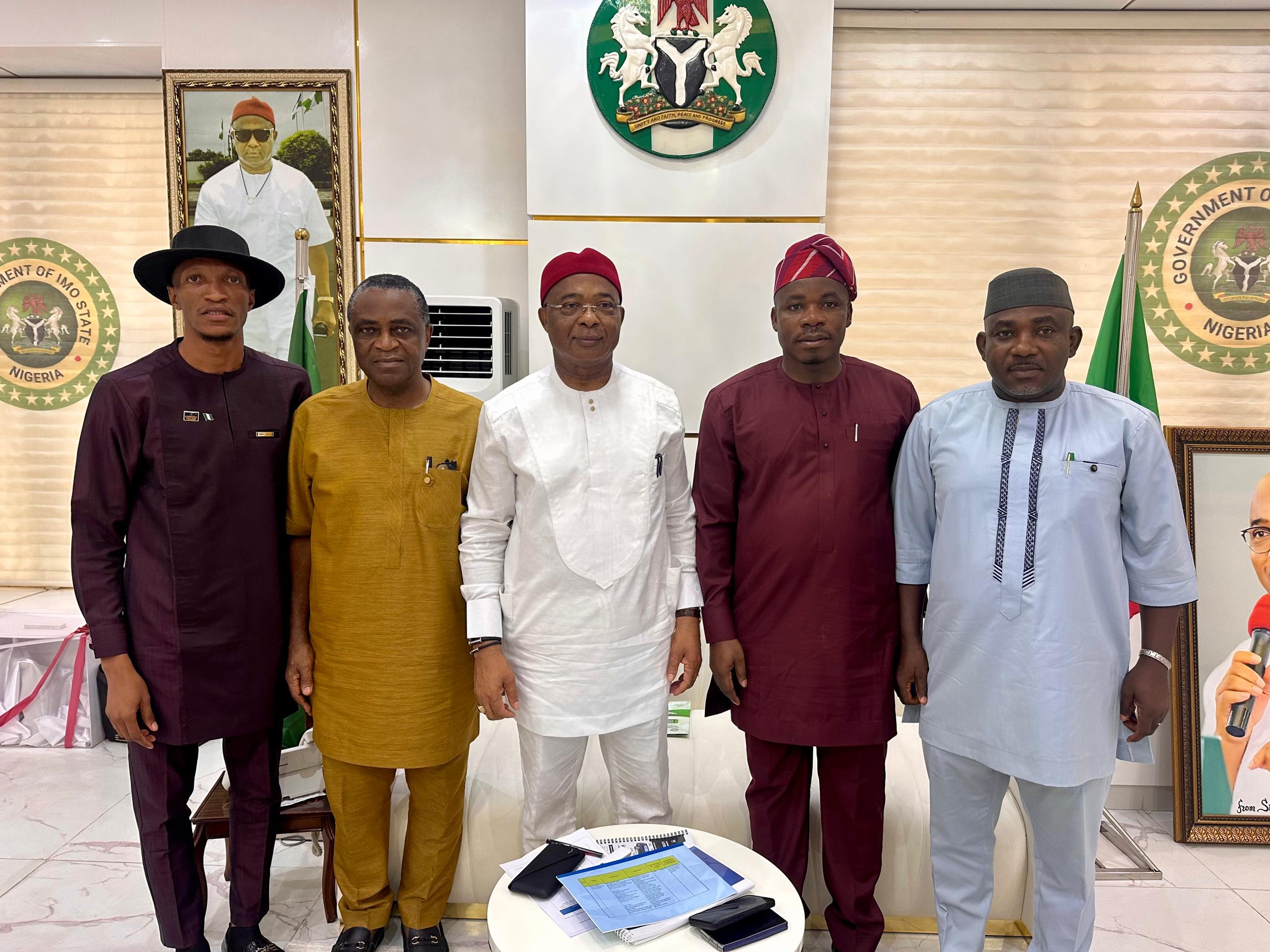
NADDC DG hails Kojo Motors for establishing CNG conversion centre in Owerri

Kojo Motors has partnered the National Automotive Design and Development Council (NADDC) in setting up the vehicle Compressed Natural Gas conversion centre in Owerri, lmo State.
Director-General of the NADDC, Joseph Osanipin, during an empowerment and awareness summit on Wednesday, March 19, 2025, commended the auto firm for the monumental project.
“Today, we are gathered here for Compressed Natural Gas (CNG) Empowerment and Awareness Summit 2025 with the theme ‘Building a youth-based nation through cleaner energy’,” he said.
Osanipin said that the the purpose of the summit was to create awareness and sensitize the public to safety, standards and regulation in the use of the CNG as a better alternative source of energy for mobility.
NADDC, he said, was equipping technicians with the knowledge, skills and competencies required to safely and efficiently convert vehicles to run on CNG.
“The Council is a parastatal of the Federal Government under the Federal Ministry of Industry, Trade and Investment,” he added.
“It has the regulatory oversight on the Nigerian Automotive Industry to initiate, recommend, supervise and regulate policies and programmes for locally manufactured vehicles and components in Nigeria.
The NADDC boss noted that the Council had worked tirelessly to ensure the survival and growth of this sector with a view to enhancing its contribution to the national economy.
As part of the CNG conversion programme, 60 technicians will be receiving hands-on training in converting vehicles to run on CNG which would run for five days from the March 17 to 21,2025.
Osanipin emphasized the importance of using certified conversion kits and specialized workshops to ensure safety during the process.
“The cylinders used in CNG vehicles are fortified, making them safer than traditional vehicle fuel tanks,” he said.
Also speaking during the event, Professor Anoka Njan, representative of the Minister of Industry Trade and Investment, praised the NADDC and Kojo Motors efforts, stating that the ministry fully supported the initiative as part of broader efforts to alleviate challenges in the auto industry and empower the youth.
Imo State Commissioner for Youth Development, Dr. Emeka Mandela Ukaegbu, who spoke at the summit on behalf of Governor Hope Uzodinma, emphasised the immense potential of the CNG in easing Nigeria’s transportation challenges and improving the economy.
“CNG offers a safer, cleaner, and cheaper alternative to the hardships many face in the country,” Dr. Madela said.
The administration is partnering with NADDC and automotive industry bodies to establish conversion workshops and CNG refilling stations across Imo State, ensuring that the state plays a key role in this important shift toward greener energy solutions.
The event marks a significant step in NADDC’s ongoing efforts to transform Nigeria’s automotive industry, making it more sustainable while creating new opportunities for skilled technicians and local communities.
Chinedu Oguegbu, Managing Director of OMAA, which is the vehicle brand promoting the petrol-powered to CNG conversion project, highlighted the economic benefits of running vehicles on CNG instead of petrol.
He listed the economic advantages to include savings up to 60 percent in the cost of fuel relative to dirtier options like diesel and petrol.
According to him, there is up to 90 percent reduction in knocks and carbon emission, and it is found to be healthier, cleaner and more environmentally friendly.
Besides savings in foreign exchange (FX) with abundance of gas locally, there is also massive resources in-country over 203 tcf of proven reserves that requires no refining and relatively lower investment for processing.
Nigeria has an estimated 15-20 million vehicles in operation that can be converted to dual-fuel or bi-fuel.
The OMAA boss reiterated the crucial need to provide an alternative to existing fuel system with the abundance of CNG as an option.
Delivering his goodwill message, Chino Ogwumike, the National Sales Manager at Kojo Motors, thanked the DG of NADDC for partnering with Kojo in this laudable project in Owerri, the heartland of the South-East of Nigeria and the government of Imo State for accepting to provide the land for building the CNG hub in the state capital.
Ogwumike stated that the flourishing automotive dealership with branches spread across the country under the visionary leadership of the founder and Executive Chairman, Ikenna Oguegbu, is strongly committed to contributing its quota towards the progress and development of Nigeria’s automotive sector and the economy.
Business
Binance delists five cryptocurrencies
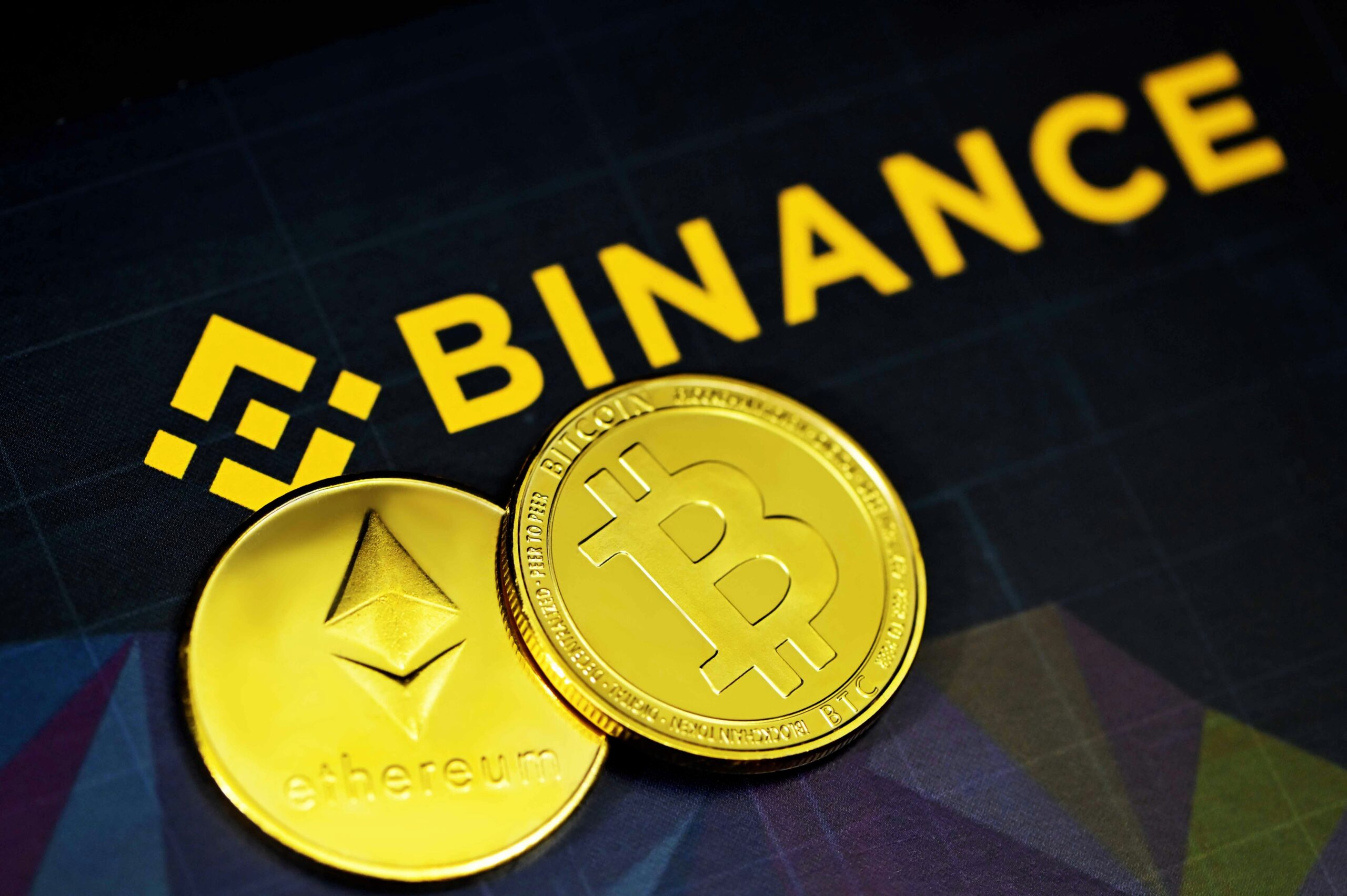
Binance delists five cryptocurrencies
Binance, the world’s largest cryptocurrency exchange, has announced the delisting of five digital assets after a routine review of their adherence to industry standards.
According to a statement released by Binance, the affected cryptocurrencies include Aergo (AERGO), AirSwap (AST), BurgerCities (BURGER), COMBO (COMBO), and Linear Finance (LINA).
The decision was based on several key factors, including trading volume, security, liquidity, the commitment of project teams, and compliance with regulatory requirements.
READ ALSO:
- Akpabio told me I’d make good movements with my waist – Natasha
- Supreme Court declares Wike’s ally Anyanwu as PDP National Secretary
- Why we want Natasha out of Senate – Kogi Central constituents
The company said this step, aimed at maintaining a robust and transparent trading environment, shows Binance’s commitment to ensuring that all listed assets align with the platform’s evolving criteria.
“These projects no longer meet the platform’s listing requirements,” Binance noted in its internal review. As a result, these tokens will be removed from all spot trading pairs starting March 28, 2025, at 3:00 a.m. UTC.
The exchange has advised users holding these assets to take appropriate steps to manage their portfolios ahead of the delisting deadline.
Key delisting details and user guidelines
Binance provided additional clarity on how the delisting process will impact its users:
- Binance Futures: Positions for AERGO, LINA, and COMBO will be automatically closed and settled by March 27, 2025, at 9:00 a.m. UTC.
- Binance Simple Earn & Investment Products: The affected tokens will no longer be available across these services after March 27, 2025.
- Binance Convert & Trading Bots: Support for the delisted tokens will cease by March 28, 2025.
Binance also mentioned that in some instances, delisted tokens might be converted into stablecoins on behalf of users after delivery. However, the exchange clarified that this would only apply if explicitly announced.
Looking ahead, Binance revealed plans to launch a Vote to Delist feature, enabling the public to suggest assets for delisting in the future. However, the tokens mentioned in this announcement will not be eligible for the feature.
Binance delists five cryptocurrencies
Business
Air Peace slashes Nigeria-London fare by N600,000

Air Peace slashes Nigeria-London fare by N600,000
Air Peace has announced a ₦600,000 reduction in its Nigeria-London airfare for all travelers flying from Nigeria.
In a statement released on Wednesday in Lagos, the airline’s Head of Corporate Communications, Dr. Ejike Ndiulo, stated that the discount is part of Air Peace’s latest promo offer.
Passengers departing from any Nigerian city to London can enjoy significant savings, along with an exclusive one-free extra luggage allowance.
READ ALSO:
- Tinubu’s state of emergency prevented Fubara from impeachment – AGF
- FG blames Fubara for bombing of oil pipeline
- Over 90% Nigerian land not registered, says Housing minister
According to Ndiulo, the airline rewarded five lucky winners of a raffle draw at the Silverbird Man of the Year Awards held on Sunday in Lagos.
He said that three winners won return economy tickets to any of Air Peace’s domestic destinations, while two won economy return tickets to London.
He said that the Chairman/Chief Executive Officer of Air Peace, Dr Allen Onyema, emphasised the airline’s commitment to driving Nigeria’s socio-economic development through its corporate social responsibility initiatives.
Air Peace slashes Nigeria-London fare by N600,000
-
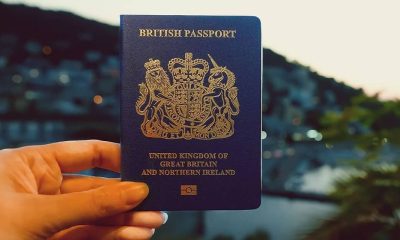
 International1 day ago
International1 day agoUK announces new passport application fees starting April 2025
-
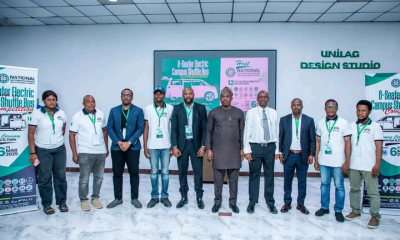
 Auto2 days ago
Auto2 days agoLanre Shittu Motors offers support for EV bus design competition in universities
-
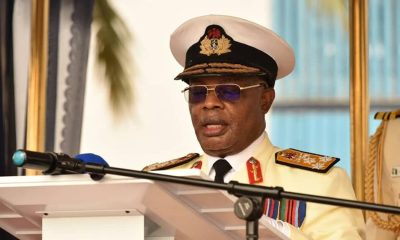
 metro2 days ago
metro2 days agoIbas: 18 things to know about Rivers administrator
-

 News3 days ago
News3 days agoBreaking: Tinubu declares state of emergency in Rivers State
-

 metro2 days ago
metro2 days agoSoldiers take over Rivers Government House after state of emergency declaration
-

 metro2 days ago
metro2 days agoPipeline explosion hits Bayelsa amid Rivers state emergency declaration
-

 metro1 day ago
metro1 day agoCourt lifts order stopping Senate probe on Natasha Akpoti
-

 News3 days ago
News3 days agoBREAKING: Tinubu addresses Nigerians on Rivers political crisis



